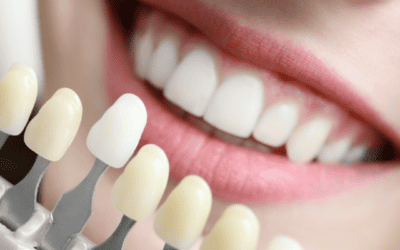According to statistics from the Cancer Council, an estimated one in two Australians will be diagnosed with cancer by the age of 85. If you are managing a cancer diagnosis and treatment, organising a dental check-up is probably (and understandably) one of the last things on your mind.
However, it may be a surprise to learn what a key role a dentist plays in cancer treatment.
To begin with, at your check-up, your dentist will be looking for any signs of oral cancer or pre-cancer. That is why regular check-ups are important, not only for your teeth and gums, but your general health!
Why it’s important to visit your dentist if you’ve received a cancer diagnosis
It is strongly advised that people affected by cancer see a dentist before, during and after treatment. The side effects of cancer treatment can have a big impact on oral health. Including:
- Difficulty with eating, talking, and swallowing.
- Higher risk for tooth decay and bleeding gums.
- Higher likelihood of sores and ulcers.
- Higher likelihood for infection.
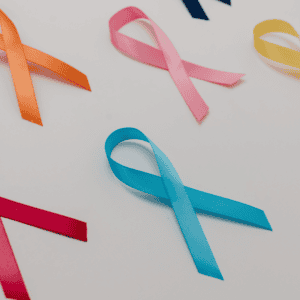
While the management of these side effects will vary from case to case— ongoing, regular dental care is highly encouraged. Especially since it may even affect your ability to keep undergoing cancer treatment. If you have toothache or a dental problem or infection during cancer treatment, it may disrupt or delay your treatment.
Addressing concerns early can help avoid possible issues in the future.
All in all, seeing a dentist beforehand as a precaution can help you to take preventative measures, ensuring your mouth is in the healthiest state it can be in. Dentists can help create a plan for any dental work that needs to be done before your cancer treatment, as well as provide advice and instructions of how to look after your mouth during cancer treatment. They will also make a post-cancer treatment plan.
The Cancer Council has a resource which you can find here: “Mouth Health and Cancer Treatment” which is an incredibly helpful facts and information sheet for people affected by cancer.
How can cancer treatment affect the mouth?
Different cancers obviously have different treatments. This is not an extensive list, but some things that as dentists we are mindful of.

It’s also important to bear in mind that your mouth is the start of your digestive tract and also the first line of defence against infection. If your mouth is painful or uncomfortable, this can affect what you will be able to eat which in turn will affect your nutrition. In addition, many cancer treatments can cause immunocompromise and if there is disruption in the integrity of the lining of the mouth, this can lead to infection
Head and Neck Radiation Therapy
Radiation to the head and neck is one treatment for head and neck cancers. However, it does have side effects. One of these is that it reduces the blood supply to the jaw bones, which in turn reduces the bone’s ability to heal itself if you were to have an infection or a tooth removed. Having a tooth removed from an area of the jaw that has had radiation therapy may cause problems with the area healing. An infection can develop in the bone called osteoradionecrosis (ORN), which can be very difficult to treat. ORN affects 7% of people who have a tooth extraction from an area that has had high does of radiation to the jaws.
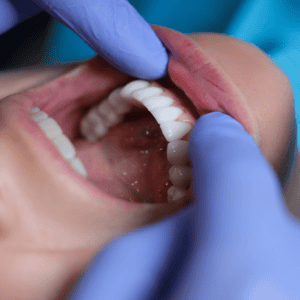
Another side effect of radiation to head is that it can affect the saliva glands. This can lead to a dry mouth. Saliva is incredibly protective of our teeth and gums. Without it, we are more prone to tooth decay, gum disease and other infections of the mouth. Dry mouth can also make it difficult to eat, speak and swallow.
Dry mouth patients are advised to see their dentist more regularly and we will instigate even more preventative procedures for you, such as high strength fluoride therapy and more regular scaling and cleaning of the teeth.
Chemotherapy
Chemotherapy works by killing rapidly dividing cells in your body – such as cancerous cells. However, the side effect of this is that it will also kill rapidly dividing cells in healthy body tissues such as hair, bone marrow, skin and the lining of your digestive tract. Remember, your digestive tract starts in your mouth! The lining of your mouth is made up of some of the most rapidly dividing cells in your body. Therefore, this can lead to the lining of your mouth being very sore and if this lining breaks down, it results in ulcers. Chemotherapy can also alter your sense of taste and reduce your appetite.
Sickness
Sickness from chemotherapy drugs can be the most difficult side effect for many people. Not all chemotherapy drugs cause sickness, and everyone is different, but if you are being sick a lot, this can affect your teeth. The acidic contents of the stomach can easily dissolve tooth enamel. Some top tips are:
- Don’t brush your teeth after being sick – this further abrades already softened enamel, and this can increase wear of the teeth.
- Make a sodium bicarbonate mouthwash – this can help neutralise the pH of your mouth. Dissolve ½ teaspoon of sodium bicarbonate in water.
- Rinse with a high fluoride mouthwash after being sick – this can help protect the tooth enamel
- Prevention is key – high strength fluoride toothpastes and mouthwashes are great. Regular trips to the dentist to have extra high strength fluoride varnishes placed and regular teeth cleaning will also help.

Sickness and stomach upsets from chemotherapy can leave you dehydrated. Make sure you are getting enough fluids. Not just for your general wellbeing, but from a dental perspective, dehydration will lead to a dry mouth.
Effects on the blood
As mentioned above, chemotherapy can also affect the bone marrow. Our bone marrow is where our red blood cells (that carry oxygen around our body), white blood cells (to fight infection) and platelets (that control bleeding) are made. Therefore, if the bone marrow is affected, we can get less of these cells. This has an effect on the mouth in a few ways:
White Blood Cells
The mouth is one of the first line of defence against infection. With reduced white blood cells, we are more prone to infection. Some dormant areas of chronic infection that may have been lying hiding in your mouth could flare up. This could be from old root canals, teeth that have had trauma in the past, or large fillings. The body is very good at keeping infections at bay. However, when immunocompromised things that haven’t bothered you before, can flare up. In addition, if you are to get a dental, gum or salivary gland infection while undergoing chemotherapy it can progress much faster and be more serious. Those undergoing chemotherapy will also be at higher risk of fungal infections of the mouth, such as candidiasis (oral thrush).
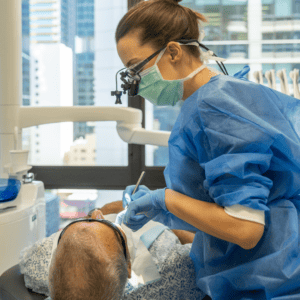
This is why before undergoing any chemotherapy or radiation treatment we like to do a through examination to address any issues that could flare up or cause problems during treatment. A severe infection could mean that your cancer treatment has to be paused until the infection is controlled.
Platelets
A reduction in platelets means that blood does not clot as quickly. This can have consequences if you require to have a tooth removed. Again, this is why we would rather take a preventive approach and do any extractions before you start treatment.
Some chemotherapy patients will notice that their gums start to bleed easily.
Red blood cells
Inadequate or poor quality red blood cells can cause issues with the lining of the mouth, including the tongue. This can lead to sore gums, burning tongue, altered taste sensation.
How the dentist can help
For some of the side effects of chemotherapy we can help with symptomatic relief in the forms of gels, mouthwashes etc. Any rough or broken/chipped teeth can be smoothed so they are not rubbing on sore gums. We will also check for any signs of infection and treat them aggressively. However, our main aim is to prevent any infections in the first place.
Preventive things include things like regular examinations, teeth cleaning and fluoride application. We can also make therapeutic trays (like a thin mouthguard that goes over the teeth) to hold certain dental products against the teeth over a longer period of time at home. We will select these products depending on risk factors – it may be something to help prevent against decay (fluoride) or for gum health (chlorhexidine or peroxides).
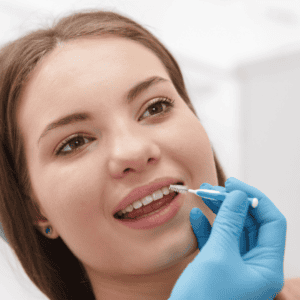
Denture wearers may struggle to wear their dentures during cancer treatment. By coming before your treatment starts, we can look at alternative options for you or find ways to help you manage your dentures.
When coming to see us before your cancer treatment starts we will be assessing the prognosis of your teeth and assessing your risk factors for dental disease and infection. We may have to make some tough choices and sometimes teeth that are likely to cause problems in the near future may have to be extracted early. This is to prevent pain and infection during your cancer treatment, or problems with healing in the future.
Caring for someone undergoing chemotherapy
Are you caring for someone undergoing chemotherapy? Here are some ways to help:
- Ensure they have an extra-soft toothbrush – softening the bristles in warm water first can help if their gums are sore
- Ensure the teeth, gums and tongue are all being brushed
- Ensure they are using a fluoride toothpaste – you can get extra high strength fluoride toothpaste from the pharmacist, or from our practice
- Ensure between the teeth are being cleaned with floss and/or interdental brushes (like Piksters)
- Make sure they are getting to their preventive dental appointments. The dentist is also a great source of tips to help with products or techniques. At these appointments the teeth and gums will be checked, and the teeth and gums cleaned. We will also apply a high strength fluoride varnish and prescribe products to use at home
- Ensure they are drinking enough water – carry a water bottle with you wherever you go.
- Find foods that they can tolerate if they are feeling sick but try to stick to low sugar as far as possible. The bacteria that cause dental disease love sugar! The less sugar the better.
- Softer foods may also be easier for them. If the lining of their mouth is sore, avoid things like crusty bread that could cut their mouth.
- You may have to blend, mash or puree foods.
- As the mouth may be very sensitive, avoid foods that are very hot or very cold; and avoid foods that are too salty, acidic or spicy.
There are lots more tips in the Cancer Council’s fact sheet – we highly recommend reading it here.

Final Thoughts
You will always hear us saying that prevention is better than cure. We understand that a cancer diagnosis is scary and a lot of time will be taken up with medical appointments. However, by having a proactive approach to your dental health we can work together to keep your mouth comfortable and help to prevent against infection. Immunocompromise, dry mouth, vomiting and a variation from your usual diet will all have dramatic consequences for your teeth. Remember, we are here to help!
References
Chemotherapy and Your Mouth: What to Know. By Colgate: https://www.colgate.com/en-gb/oral-health/cancer/chemotherapy-your-mouth
Why dental care is so important during cancer treatment: https://www.cancercenter.com/community/blog/2024/02/cancer-treatment-and-your-teeth#Q1
Mouth Health And Cancer Treatment – Cancer Council: https://www.cancercouncil.com.au/wp-content/uploads/2023/07/Mouth-Health-and-Cancer-Treatment-2020.pdf
Facts and Figures. Cancer Council: https://www.cancer.org.au/cancer-information/what-is-cancer/facts-and-figures
Oral Care Advice for Patients having Radiotherapy – York and Scarborough Teaching Hospitals NHS Foundation Trust: https://www.yorkhospitals.nhs.uk/seecmsfile/?id=7402#:~:text=A%20Restorative%20Dentist%20will%20see,a%20higher%20risk%20of%20decay.
Exploring the Impact of Blood Disorders on Dental Caries; https://www.ncbi.nlm.nih.gov/pmc/articles/PMC10651806/
Side Effects of Chemotherapy – Cancer Research UK: https://www.cancerresearchuk.org/about-cancer/treatment/chemotherapy/side-effects/about


